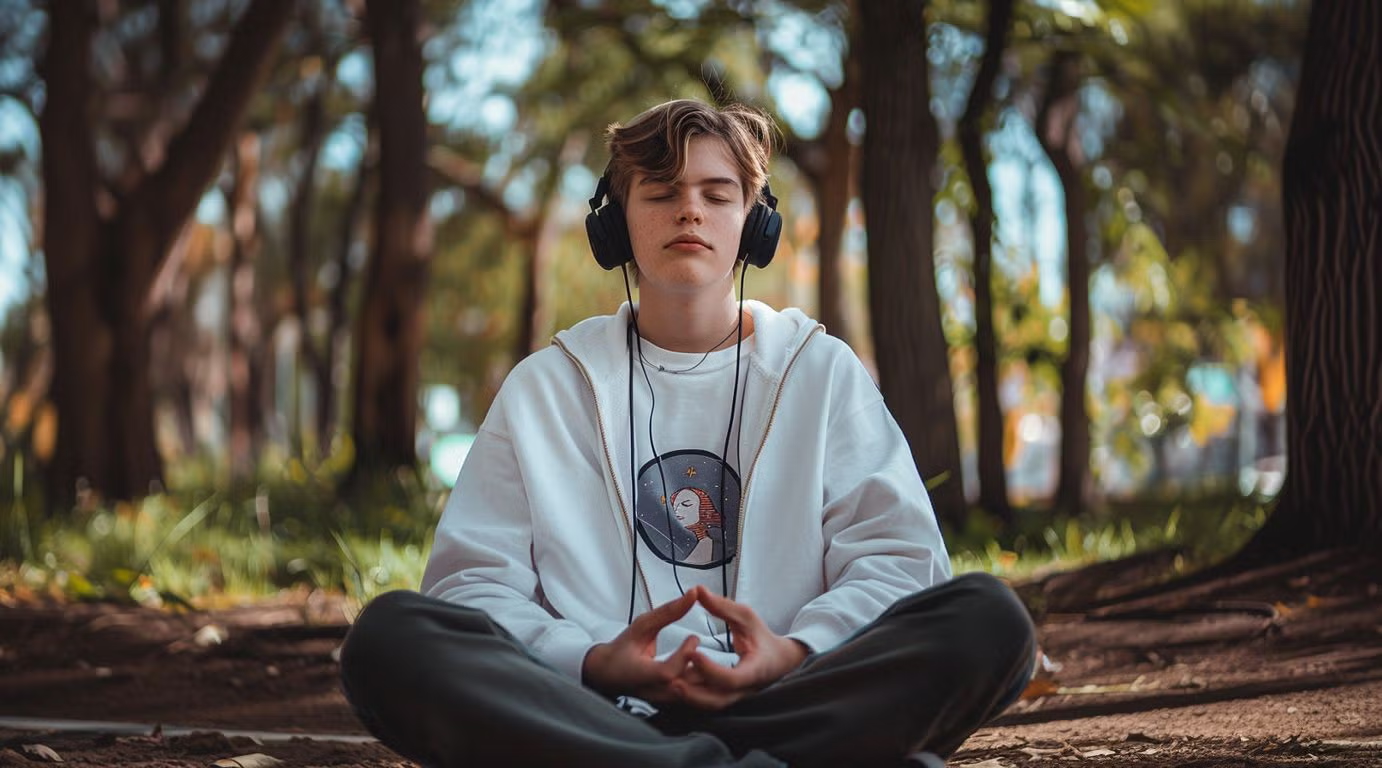Life seems to be going faster than ever these days, so it’s easy to feel stressed, lonely, or mentally tired. Many of us experience daily stress from various sources, including work, relationships, financial concerns, and the technology that occupies our time. In the middle of all this chaos, improving your mental health may seem like an impossible goal. Adding awareness to your daily life, on the other hand, can be a simple but effective way to improve your mental health.
Being mindful doesn’t need expensive tools, a lot of time, or a big change in your life. You only need to be there for a short time every day to stop, breathe, and connect with the present. Over time, these moments of mindfulness can change how you feel about life, making you feel more grounded, emotionally strong, and mentally clear.
Why is it important to be mindful?
Paying full attention to the present moment without judging it is what mindfulness is all about. Gently becoming aware of your thoughts, feelings, bodily sensations, and surroundings is what mindfulness means. Mindfulness asks you to stop and pay attention to what’s going on around you and inside you instead of running through the day.
Mindfulness has been shown to have big benefits for mental health. It lowers stress, helps people with anxiety and sadness control their emotions better, and it can even improve memory and attention. It can also help you stop talking badly to yourself and feel more kindness for others and yourself.
Mindfulness is key because it shows you that you are not your thoughts or feelings; you just witness them. This new way of looking at things gives me more peace, balance, and mental control in my daily life.
Beginning Small: Being Mindful in Everyday Situations
People often think that to practice mindfulness, they need to set aside a lot of time. In fact, you can incorporate awareness into the things you do every day. Being aware can help you brush your teeth, walk to work, drink tea, or do the dishes.
Focus on the job at hand. Feel the sounds, see the colors, and pay attention to the movement. If your mind wanders, which it will, bring it back to the present moment slowly. Not judging, just being aware.
Mindful breathing for even one minute can help calm your mind, keep your nervous system in check, and help you see things more clearly during a busy day. Doing these small things regularly will have big effects on your mental and emotional health as a whole.
Being mindful and aware of your emotions
Emotional awareness is one of the best things about practicing mindfulness every day. We don’t always know what feelings are causing us to act the way we do. We might snap at someone when we’re really tired or stressed out, but we don’t realize it because we’ve been holding in our anger.
Mindfulness makes you more aware of what’s going on inside you. When worry starts to build up, when nervousness shows up in your body, or when you act out of fear instead of calmness, you start to notice it. Being aware of what’s going on around you lets you respond instead of react, meaning you can choose your next move based on knowledge instead of emotion.
This kind of emotional intelligence not only makes you feel better, but it also makes your relationships, conversations, and decisions better.
Mindfulness Activities You Can Do Every Day
Here are some simple things you can do every day to improve your mental health and become more mindful:
Setting Intentions in the Morning
Begin your day with a plan. Take a moment to sit still before you check your phone or start working quickly. Take a few deep breaths and ask yourself what kind of mood you want to have today: calm, focused, or thankful? Set a goal that will help you decide what to do and how to feel throughout the day.
Aware Breathing
You can do this anywhere and at any time. Pay attention to your breath, both as you breathe in and out. Bring your attention back to your breath if your mind wanders. Taking a few deep, conscious breaths can instantly calm your mind.
Foods for Thought
Try eating one meal a day without your phone, TV, or other things that could be taking your attention away. Pay close attention to how your food smells, tastes, and feels. Pay attention to how you chew and swallow. Mindful eating can help your stomach, keep you from eating too much, and make you feel fuller.
Meditation with a Body Scan
Do a quick body scan before bed or during a break. As you slowly move from the top of your head to your feet, pay attention to any feelings or stress that come up. This brings you back into your body and helps your body deal with stress.
Thoughts on Being Thankful
At the end of the day, think about three things you’re thankful for. You can then think about what’s going well instead of what went wrong. Being thankful makes you mentally stronger and can make you feel much better over time.
How mindfulness and mental health are linked in science
There is science behind mindfulness, so it’s not just a health trend. Studies have shown that practicing mindfulness regularly can make the amygdala less active. The amygdala is the part of the brain that controls stress and fear reactions. That same time, it makes the prefrontal cortex thicker, which is linked to controlling emotions, making choices, and being aware of oneself.
Being mindful can also help you sleep better, which is very important for your mental health. It is thought that people who practice awareness sleep better and feel better in the morning.
Mindfulness also raises amounts of serotonin and endorphins, which are natural mood boosters that can help people with worry and sadness.
Getting Past Common Problems
It can be hard to start a mindfulness exercise at first. Thoughts will wander, you may feel bored, or you may question whether it’s true. That is perfectly normal.
It’s not important to “empty your mind” or reach a state of zen. The goal is to pay attention to what you’re thinking, feeling, and experiencing, and to be kind to yourself as you do so.
Not only that, but know that being aware is a skill. It takes work, just like any other skill. Start out small. Don’t rush. Don’t judge what you’ve been through. It will take some time for mindfulness to become second nature, and you will notice its benefits more in your daily life.
Last Thoughts: You Can Choose Peace Every Day
Practicing mindfulness doesn’t mean running away from reality; it means giving your life your full attention, just the way it is. Mindfulness can help you find mental peace, internal balance, and more if you do it every day. Being in the present moment, which is the only moment you really have, helps you stay centered when life gets rough.
You don’t have to make big changes in your life to improve your mental health. Sometimes, all it takes is one deep breath, a moment of silence, or a peaceful walk in the woods to start a strong change. With mindfulness, you can find peace, and with peace, you can heal.
If you practice awareness every day, you don’t just stay alive, you grow. Your happiness grows stronger, your mind gets better, and your heart feels lighter. It’s that inner calm that makes you strong in a world that often feels out of control.


